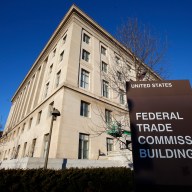The University of British Columbia has received a $1-million donation to launch a groundbreaking international reporting class, making the graduate school of journalism one of the most innovative in the country.
The course takes 10 students in three groups to three different countries to report on an international issue. Its goal is to “throw students into the fire,” and it hopes to produce a new generation of responsible journalists.
The donation was made by Alison Lawton, an entrepreneur and human activist who lives in West Vancouver.
“From a budget standpoint, international reporting always gets cut. But these stories provide society with the most pressing issues of our times,” Lawton said.
Lawton connected with Peter Klein, an Emmy-award winning producer for 60 Minutes, who teaches at the school.
“We both thought it was really important to engage young journalists internationally,” Lawton said.
Blake Sifton from the class of 2009 went to Ghana, West Africa, to report on an e-waste site with the first international reporting class.
Sifton has a history of reporting in conflict zones, including riots in the West Bank and demonstrations in Montreal.
In Ghana, Sifton quickly realized the responsibility of working with vulnerable populations.
“In a conflict environment, you need to make sure that the people who help you won’t be in danger because of your story,” he said.
Director Mary Lynn Young says that the course is an opportunity to practise “real journalism” on the ground with the support of a mentor and a group.
“A lot of students report internationally with NGOs, which is often unsafe, and without training,” she said.
Sifton, who has been arrested, clubbed and tear-gassed, described his report in Ghana his safest trip yet.
“There was never a single threatening moment,” he said. “And we made sure to tell a story that hadn’t been told by mainstream media.”
Lawton’s donation will send 10 students for the next 10 years to various countries to report on underrepresented issues.
“This course is a golden opportunity to see this with fresh eyes, from the vantage point of a younger generation,” Lawton said.
The class of 2009’s final documentary on e-waste will be broadcast on the PBS program Frontline.
















